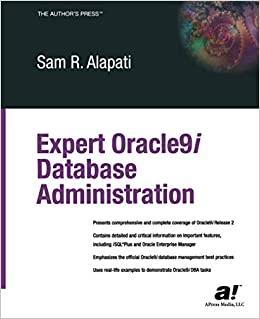Answered step by step
Verified Expert Solution
Question
1 Approved Answer
I. SAS OUTPUT INTERPRETATION SCENARIO: A study of smoking and colon cancer recruited 4 8 men who have been diagnosed with colon cancer in the
I. SAS OUTPUT INTERPRETATION
SCENARIO: A study of smoking and colon cancer recruited men who have been diagnosed with colon cancer in the past years prevalent and incident cases and a random sample of colon cancerfree men who received a colonoscopy within the past month at the same US hospital where the cases are being treated. Participants were asked about their smoking history in the past years. For smoking, participants were categorized as exposed if they reported smoking at least an average of one pack per day over the year period, and unexposed otherwise.
Researchers suspected several other variables as possible confounders, or effect modifiers of the smoking colon cancer relationship, and so they collected information about the following variables over the past years: alcohol consumption dichotomized as vs drinks per day aspirin consumption dichotomized as vs mg per day coffee consumption vs cups per day and exercise vs times per week The SAS syntax and its output are on Blackboard, along with the dataset if you wish to run the analyses yourself. The codebook for variables is below:
Alphabetic List of Variables and Attributes
# Variable Type Length Original Format Recoding Label
alcohol Num Unexposed No
Exposed Yes
Average alcoholic drinks per day
aspirin Num No
Yes
Average mg aspirin per day
cancer Num Control
Case
Has colon cancer
coffee Num No
Yes
Average of cups of coffee per day
exercise Num No
Yes
Physically active times per week
id Num Study ID
smoking Num No
Yes
Totaled packyears average of pack per day
Note: All you need to answer the following questions is the SAS output that has been provided in PDF form on Blackboard. The SAS syntax is provided to give you a sense of some of the analyses performed before arriving at the final outputs; not all the syntax has associated output provided.
Create a table not directly copy from SAS output file to display the distribution of the exposure and other variables, stratified by colon cancer status eg describe the proportion of participants who smoked, drank alcohol, etc., among cases and controls and summarize the findings sentences point
Use a table not directly copy from SAS output file to present the study findings. The table should start with the unadjusted model, then move to assessment of confounding and effect modification, and should finally present and label the correct and final results. Describe and interpret only the final and relevant results in detail, briefly mentioning why you chose these particular results to present short paragraph, ~ sentences points
Discuss limitations and potential sources of bias in this study. How might these issues have affected the results and causal inferences that can be drawn from them? short paragraph, ~ sentences points
Suggest an alternate study design be specific, including details like exposureoutcome assessment and measure of association for this research question that would address some of the limitations that you described in Q How could your proposal improve internalexternal validity and the causal inferences that can be made? Does your proposal have any drawbacks? short paragraph, ~ sentences points
Step by Step Solution
There are 3 Steps involved in it
Step: 1

Get Instant Access to Expert-Tailored Solutions
See step-by-step solutions with expert insights and AI powered tools for academic success
Step: 2

Step: 3

Ace Your Homework with AI
Get the answers you need in no time with our AI-driven, step-by-step assistance
Get Started


